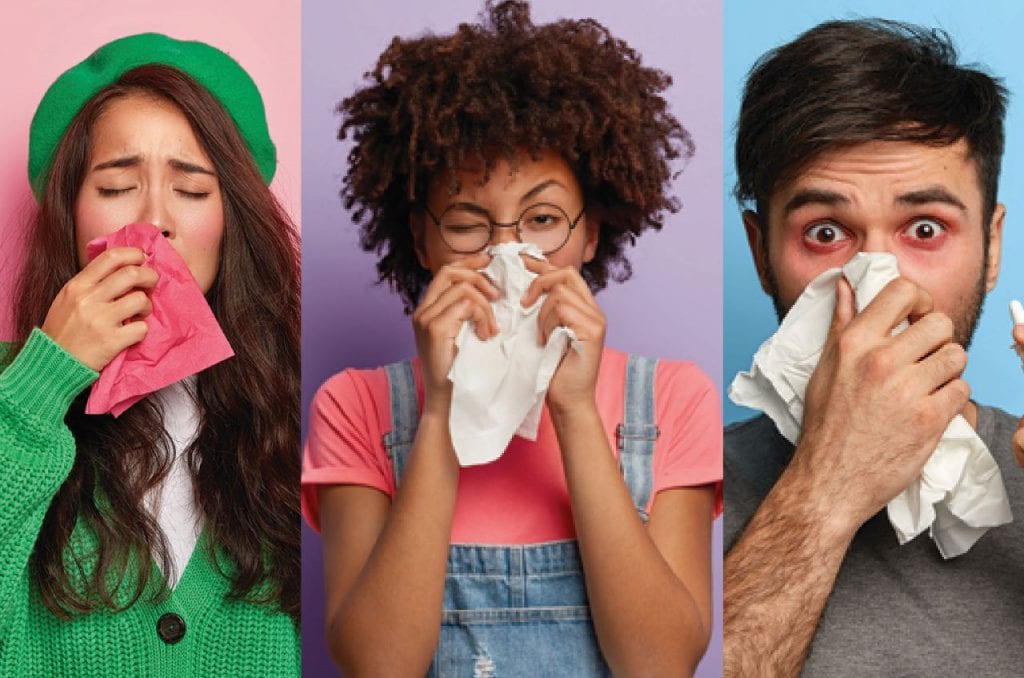Three things are actually certain in life: death, taxes and environmental allergies in the genetically predisposed. Every year, pollen, dust and mold fill the air, wreaking havoc on the eyes and noses of those who are afflicted. Washington University allergist and immunologist Dr. Maya Jerath says adhering to some simple advice can keep the sniffling, sneezing and itching to a minimum.
“Seasonal allergies at this time of year often mean coughing, postnasal drainage and worsening asthma on top of the usual eye and nasal discomfort,” she says. “Severity depends on the specific things you’re allergic to and the time of year. Trees are pollinating now through May, and grasses from late May into August. Then, weed pollens stir up and last until the first hard frost in the fall.” Mold is a problem as well, especially in the fall when damp leaf litter is lying around.
According to Jerath, the cardinal rule of allergy relief is to stay away from triggers as much as possible. Sufferers should visit a doctor to find out if they need testing and therapy for specific allergens. “If there are triggers you can avoid, like dust and pet dander, the physician can talk about how to do that,” Jerath says. “For allergens you can’t avoid, like pollen, the best advice is to mitigate the problem by not driving or sleeping with open windows, wiping your feet when you come indoors and washing clothes thoroughly.”
Jerath says she starts by asking patients which symptoms are the most bothersome, like coughing, sneezing or congestion. “Then, we try medications for those particular symptoms,” she notes. “If there isn’t much improvement, we may add other drugs depending on severity and response.” Antihistamine eye drops can be beneficial, and nasal and eye rinses can help wash irritants away. “Some patients prefer rinses as a nonmedical approach,” Jerath notes. “Treatment needs to be something the patient actually will use, so we work closely with each person to customize the right combination of therapies.”
She says some people see a decrease in allergy symptoms as they age, and others experience the opposite. “Patients also tell us they notice greater or lesser severity when moving from one city to another,” she notes. “A simple change of environment can have a major effect.”
tackle outdoor triggers
- If you can, stay inside on dry, windy days. Your best bet for an outdoor foray is after a downpour, which helps remove pollen from the air.
- Got grass and weed allergies? Get someone else to do the mowing.
- After being outside, change clothes and shower to remove pollen from your hair and skin.
- Don’t hang laundry outdoors; damp sheets and towels can attract pollen.
- Wear a face mask when working in the yard.
- Check local TV or radio for a daily pollen forecast. If high levels are expected, take your allergy medication before symptoms start.
- Pollen counts are highest in the early morning. If you have to go outside, do it later in the day.
Source: Mayo Clinic
